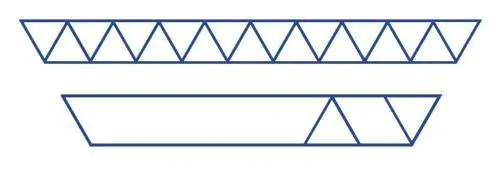“Really?”
“Really!” Jim said. The man, whose name was Charlie, softened his glare. He beckoned Jim to his bedside, and even let him place the ashes, once he discovered that Jim was offering circles instead of crosses. Jim’s boss, a stern and remote Lutheran pastor, had finally acceded to his lobbying on behalf of all the people in the hospital who might wish to wear proof of their awareness of mortality, and a sign of their faith in something , but to whom crosses were anathema. So Jim went around with his little pot of ashes, in solemn joy, making crosses for the cross folk and circles for the circle folk, reminding everyone that they were going to die one day.
“Ashes to ashes,” he said to Charlie, who asked for a smiley face on his bald spot instead of a circle on his forehead. “Dust to dust. From dust thou were made, to dust thou shalt return. Remember that now is all that you have, forever.”
Charlie laughed. “Just this part, actually,” he said, gesturing with a spotted hand at everything below his neck. “The top piece has got a lot longer.”
“Excuse me?” Jim said, and Charlie explained: the application, the dewars, the glorious future.
Why the fuck would anybody do that? Jim wanted to ask, but he asked instead, “Why do you want to do that?” They talked for a half hour — Jim sensed a need, and he would have stayed even longer if it hadn’t been the busiest day of the year, but Charlie only wanted to talk about the future, not his own ambiguous grief at the approaching end of his life. So Jim closed the visit with a prayer to the Great Spirit of Eternity, holding hands with Charlie and asking that his frozen sleep be brief, his freeze damage be minimal or nonexistent, and his life beyond life be forever flourishing.
“Amen to that shit,” Charlie said, but he had tears in his eyes. Then he asked why Jim wasn’t wearing a circle or a smiley face of his own.
“Well, you don’t really do it to yourself,” Jim said. “But one of my colleagues will do me up later. It’s like when the waiters have dinner after the restaurant closes.”
“I’ll do it right now,” Charlie said, “if you want. I’m qualified, right? A fellow atheist?”
“Sure,” Jim said. He handed over the pot and sat on the bed with his face turned up and his eyes closed.
“Ice eternal,” Charlie said, making the circle in three short rough sweeps. “Life to life. Remember that you don’t ever have to die.”
“Except that I do!” Jim added, opening his eyes to see Charlie’s wide grin. “Amen!” Jim bowed and left the room. The patient is a citizen of Spiritual World A , he would write in the chart (and later, in his book, as he recounted the story to no one at all, for the purpose of forgetting it utterly), meaning that he knew what he knew, spiritually, and a chaplain wouldn’t do him any clinical good by sowing doubts in his mind or trying to shake up his placid unquestioning faith. He describes himself as an atheist, but really he worships God as the Future. Back in the Pastoral Care offices, Jim ran into his boss. “Jesus, Jim!” she said. “It’s Ash Wednesday, not fucking Pictionary!”
“What?” he said. She raised her hand in a furious salute, one finger pointing stiffly at her forehead.
Jim went into the bathroom to see that Charlie had drawn a triangle on his head. Jim wiped it off, feeling conned. Back when he was a chaplain intern, still afraid to pray with his patients, he once bargained a sweet old lady into leading their prayer together, thinking that would allow him to avoid having to call out to anything or anybody he didn’t believe in. She’d agreed, but only after he promised to repeat what she said word for word, so she tricked him into throwing himself on the mercy of Jesus, and dedicating his life to Him forever. She had grinned in just the same way that Charlie did, and Jim felt just as dirty afterward, having been sanctified to a final principle that went against everything he believed in. He wanted to go back up to Charlie’s room and shout at him, to ask him if he had ever made his life mean something, if he had ever dared risk everything with another terminally human being, dared love somebody knowing in your bones that this life was all you had. But he knew that wouldn’t make somebody like Charlie understand.
So I waited all day to talk to my wife, he wrote in his book. Since she was the only person — she always had been — who could really understand why his day was so upsetting. He went home early and waited for her, perusing the Polaris website so they could look at it together, covering their mouths and pointing. She texted that she would be late coming home, and as the hours passed Jim flipped back and forth between the website and the sort of tasteful porn he used sometimes to rev himself up for her, since he wanted nothing more than to erase the mark on his forehead by rubbing his face over every part of her body. There you are, I said, when she came home, and she smiled and said she was sorry for being late. She came over to ask what he was looking at, close enough that he could smell her, and then really see her, and understand what she had been doing. He closed his computer and said, “Nothing, really. Nothing at all.”
And that’s how I met Alice, he wrote. Not right away, of course. He kept on learning about Polaris because he was still waiting to tell Jane all about it, after she told him her own news, when her fidelity finally moved her to confess her affair while confessing would still have meant something. The flirtation with Alice, when it started, was just something to do while Jim was waiting for Jane to come back to him. Or else, he wrote, it was just a perfect complementary affair, illusory until it wasn’t, perfect because it signified a more complete withdrawal than anything she might manage. And yet, if she had only done what she had promised she would, he could have deleted his Polaris account. But instead he found her with her lover at breakfast, and two days later he went to Oviedo to sign the papers.

Jim stared at his neat blocky handwriting, half-expecting the words to disappear while he watched. But he never forgot what he wrote until after he closed the book, marking whatever he was working on as finished . He’d never flipped back the pages to see, but he expected the words were all still there, that the people and ideas they represented disappeared only from his mind, not from the page. If the words actually disappeared, then he wouldn’t need to burn the book, would he?
He made another kind of note, on a single sheet of paper, adding to a list of things he wanted to ask Alice. This was a good idea in theory, but in practice it was a little more complicated, since he had no idea anymore what the questions referred to, and didn’t dare look back to check. So he hadn’t asked her any of the questions yet. Still, he would add this one to the list: No. 12: Do I really have to burn the book? Meaning, he supposed, did he really have to destroy the memories, once he had forgotten them? Maybe it was a theological distinction, to say that these people and things could be dead to him and yet alive to themselves within the pages, only waiting, like the famous cat in the box, for someone to look in before they could live and breathe again within the sacred spaces of memory. Which is perhaps something he had already considered, and what he meant when he wrote No. 6: But what about the cat? or possibly No. 9: Mystic memory? Chords of memory? The whole universe as recording medium? Immortal memory? Living vs Dead = ROM vs RAM?
Читать дальше













